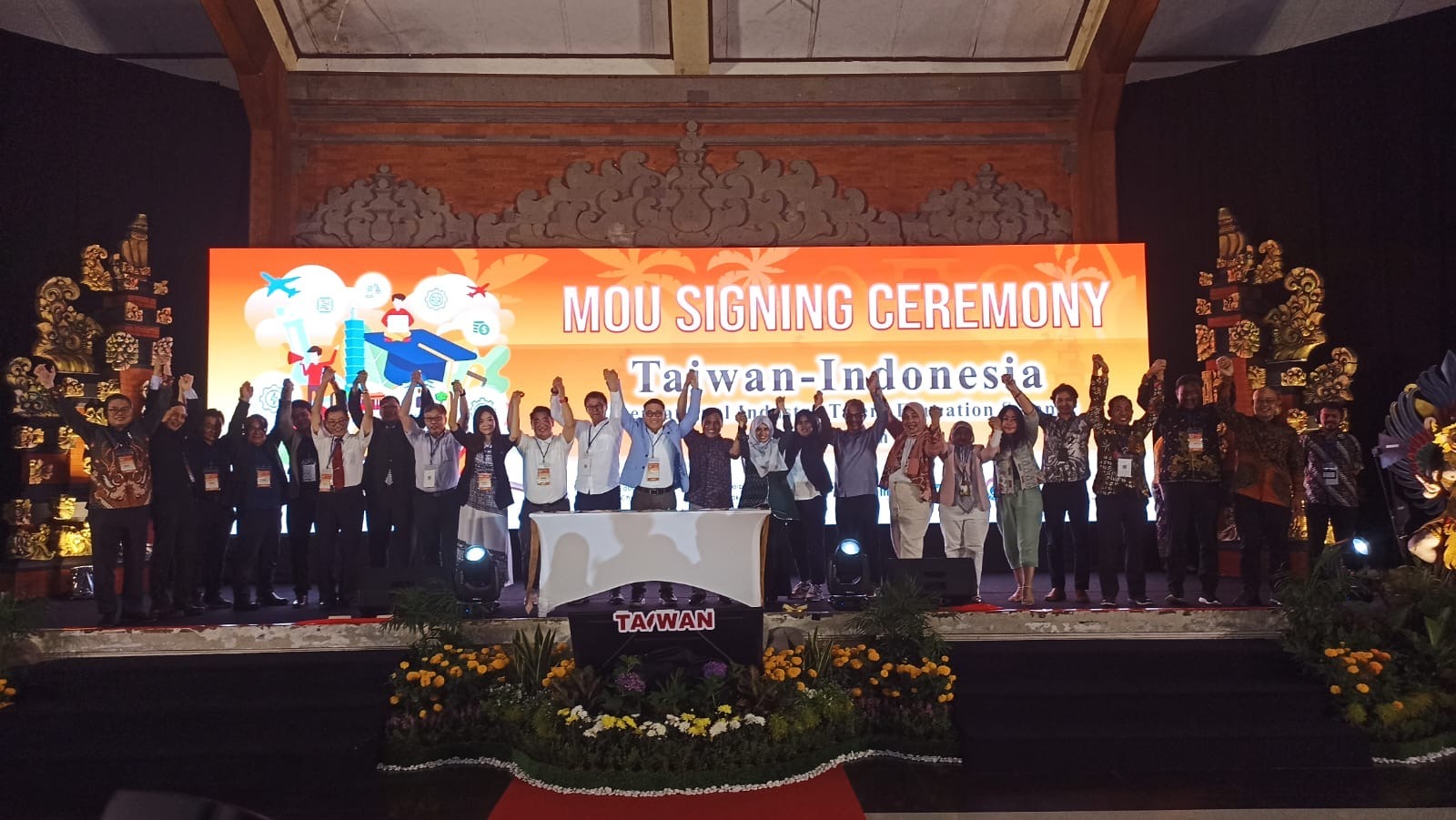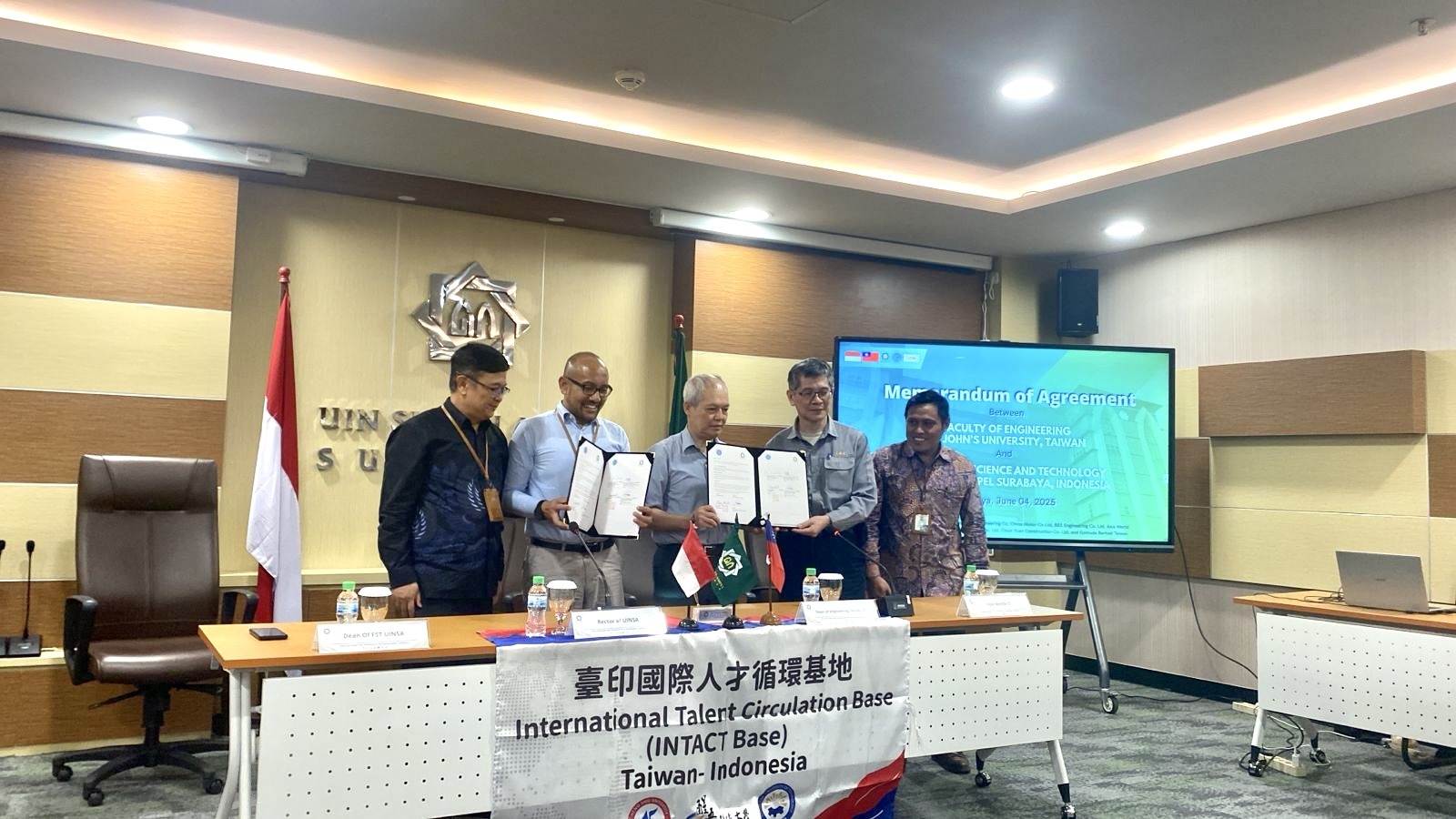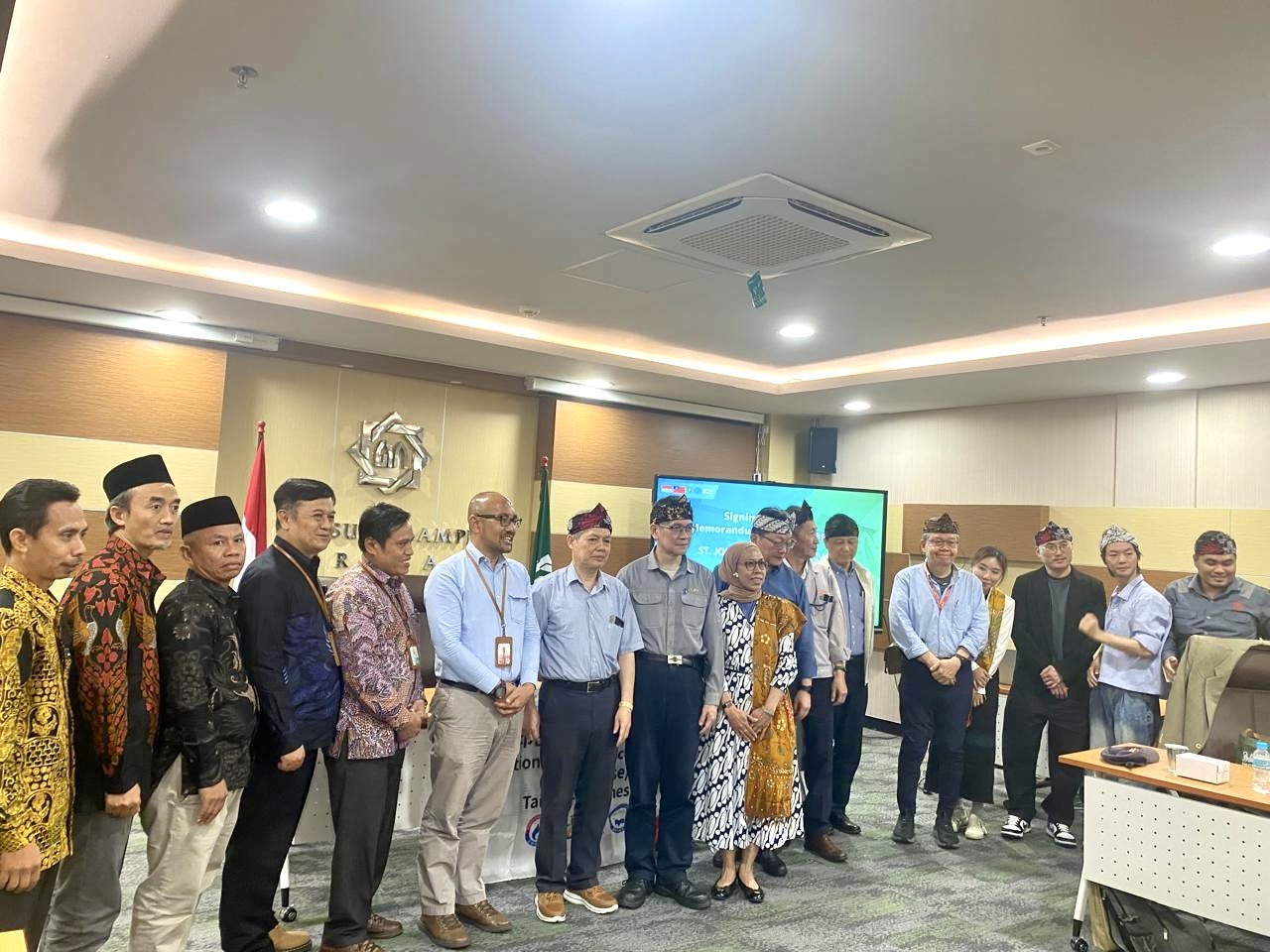
(Surabaya, 06/06/2025) — Long before the ceremonial signing between UIN Sunan Ampel Surabaya (UINSA) and St. John’s University, Taiwan on June 4, 2025, the seeds of this landmark partnership had already been planted by Faculty of Social and Political Sciences (FISIP) of UINSA. It was in December 2024, during a gathering in Bali, that UINSA first formalized its engagement with Taiwan’s International Industrial Talents Education (INTENSE) program. This early agreement, driven by the vision and dedication of M. Fathoni Hakim, M.Si., Head of FISIP’s Quality Assurance Unit, laid the institutional groundwork for what would become not only a cross-border but also multi-faculty academic collaboration within UINSA.
While the June 2025 MoU and MoA with St. John’s University specifically formalizes a double degree program in Civil Engineering, which links the Faculty of Science and Technology of UINSA with the Faculty of Engineering of St. John’s University. The roots of this achievement trace back to FISIP’s pioneering role. As a faculty grounded in the social sciences, FISIP led the way in building international academic trust, diplomatic ties, and institutional credibility. This strategic foresight allowed UINSA to position itself as a global academic player not only in social disciplines, but as a university with the capacity to scale its partnerships into science and technology.

The partnership also reflects UINSA’s commitment to interreligious dialogue and inclusive collaboration. St. John’s University, a Catholic university, and UINSA, a leading Islamic university, are forging a cooperation that transcends religious boundaries while remaining true to their respective values. It is a living embodiment of UINSA’s identity as a moderate Islamic institution, as symbolized by the university’s iconic Integrated Twin Tower Complex that representing the balance between spiritual and worldly pursuits. This collaboration honors that balance, marrying intellectual ambition with ethical commitment, local values with global relevance.
This Taiwan-bound academic journey is not new for UINSA. In fact, the latest cohort of students marks the third wave sent to Taiwan, with the first and second cohorts originating from FISIP. Although the INTENSE program primarily focuses on STEM disciplines, FISIP ensured its continued involvement by designing innovative pathways such as post-bachelor internships and contract-based placements, fully funded by the program. These models allow students from the social sciences to remain part of the international academic and professional circulation.
Recognizing the scale and technical requirements of the INTENSE program, UINSA’s Faculty of Science and Technology has now joined the initiative, allowing a broader segment of the student body to benefit from Taiwan’s high-tech ecosystem. Yet, it is FISIP’s groundwork—its early negotiations, strategic diplomacy, and adaptive program development that made this expansion possible.

This trajectory demonstrates more than interfaculty collaboration and represents solidarity within UINSA. Each faculty, while distinct in focus, contributes to the university’s shared vision of global engagement. The progression from social science diplomacy to science and engineering implementation reflects a maturing institution that knows how to lead, connect, and grow together with integrity.
As UINSA continues to chart its course as a globally engaged Islamic university, it does so with the lessons of FISIP at its foundation: academic courage, cross-cultural dialogue, and a commitment to meaningful, equitable partnerships. Through this model, UINSA is not just sending students abroad but also sending a message of unity, balance, and progress to the global academic community.
Written by Nadia Devina Fathimatuz Zahra.















